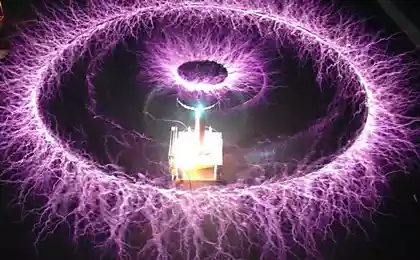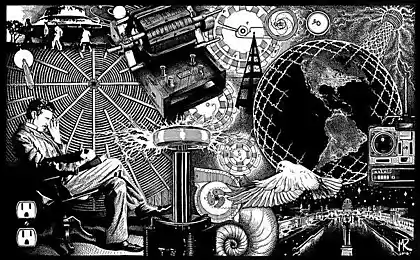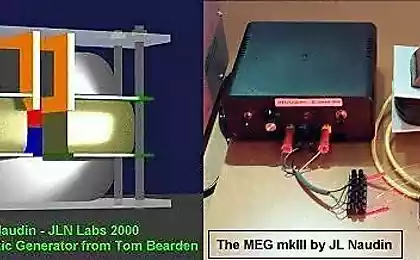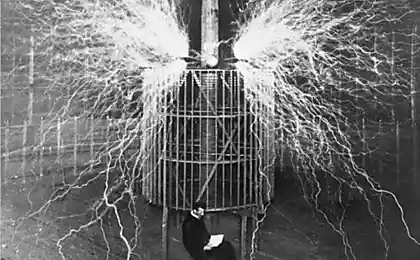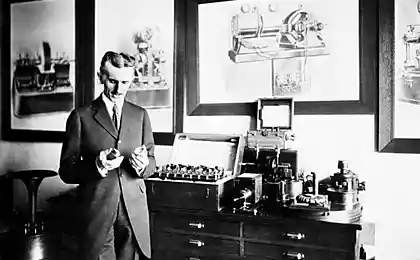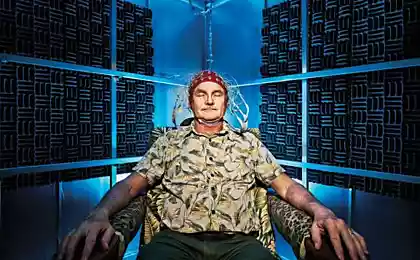1325
Generated record magnetic field of 91 Tesla 4
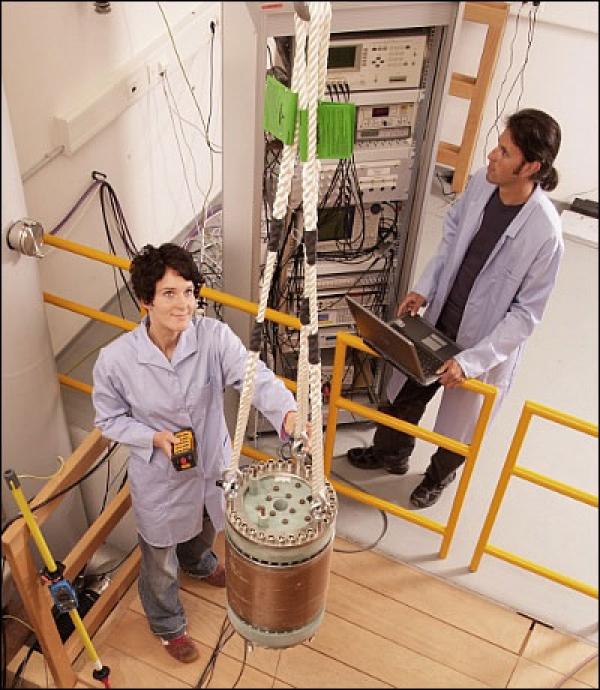
Electromagnets - a device that uses the effect of creating a magnetic field in the conductor by passing electrical current therein. Usually the electromagnet consists of a conductive coil and a ferromagnetic core which acquires the properties of a magnet when a current is passed through the coil. This coil was used in recent studies, during which it was obtained by the magnetic field record value. Graduate studies led Kharkov State University Sergey Zherlitsyn that from March 2011 headed Department of magnetic technologies and research infrastructure of the Dresden High Magnetic Field Laboratory in the Helmholtz Centre.
Zherlitsyn and his colleagues created a coil whose weight was about 200 kg. For this coil scientists passed electric current, which leads to the creation of the magnetic field strengths 91 for the period T 4 to a few milliseconds. In this case, the coil remained intact during the experiment.
Such strong fields available for research for some time, but do not have the explosive nature, were first obtained by scientists in the laboratory.
"We were not trying to set a record and achieve the maximum possible value of the magnetic field. We conducted our research in the field of materials science, "- commented the achievement of his laboratory's director Joachim charioteer. Using a powerful magnetic field, scientists can make a number of important research, in particular, as stated in a press release, with the help of such fields can check the properties of "superconductors or substances that are used in advanced innovative electronic devices».
A problem arises when creating high magnetic fields by generating them by passing an electric current coil of copper, is that the magnetic field affects the electric current in an attempt to "squeeze" out of its coil, causing copper to break even when the magnitude of the fields 25 T.
Field in the 100 T creates inside copper pressure which is 40 000 times greater than the atmospheric pressure at sea level.
But it was such a strong field and researchers need to study the behavior of electric charges in the new materials that will be found wide application in the near future.
To solve the problem of the gap when the coil generating a magnetic field, scientists do not use pure copper, in particular alloys which can withstand high pressure. In order to strengthen the outside coil circuit is placed in a special pouch created from heavy-duty material, such as that of which makes bulletproof vests.
However, if the magnetic field of 91, 4 T is a record value, then in its lifetime this is not a record figure, because in the US Los Alamos laboratory magnetic field of 89 T was maintained for several years.
But this problem will soon be solved and the Dresden laboratory: a special double coil that can withstand strong magnetic field for a long period, is almost ready and will soon be put into operation.
Work with strong magnetic fields has aroused great interest in the Dresden laboratory by scientists around the world. Due to the large number of people willing to put their experiments here the number of experimental units (currently five) up to 2015 will be increased by more than two times.
Russian instrument will shed light on the history of water on Mars.
Manned space flight is not justified economically, scientifically.




